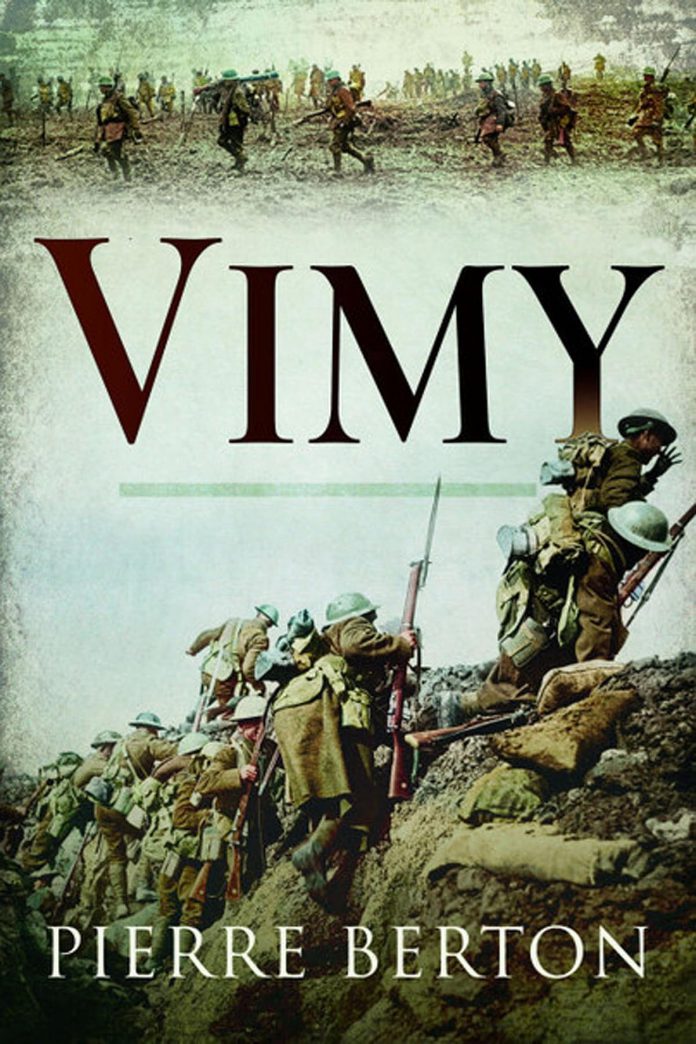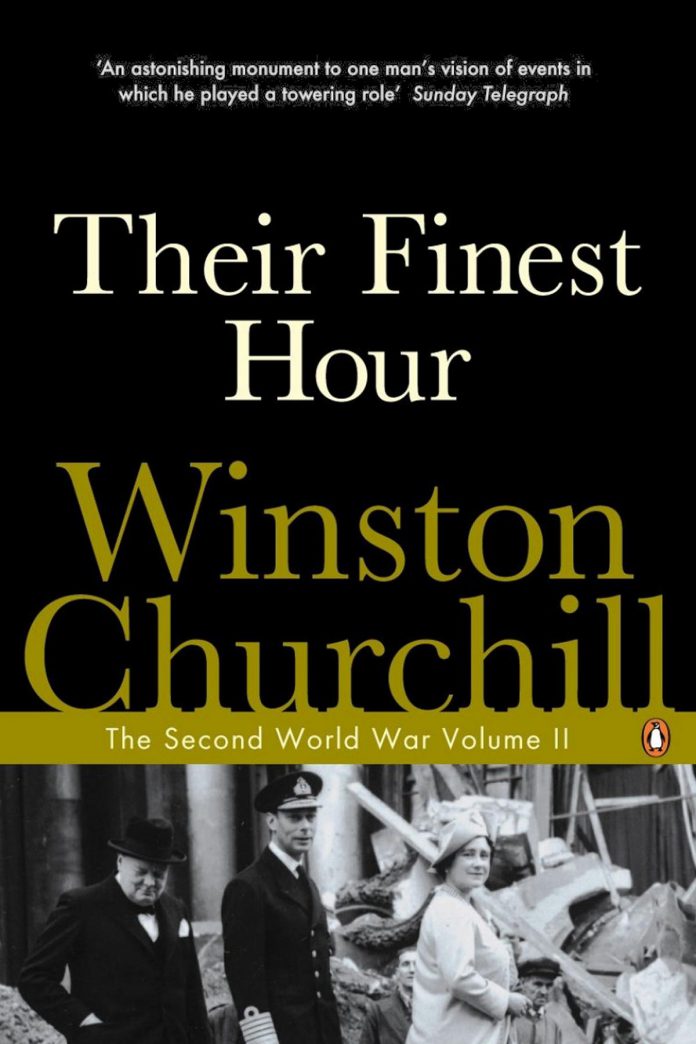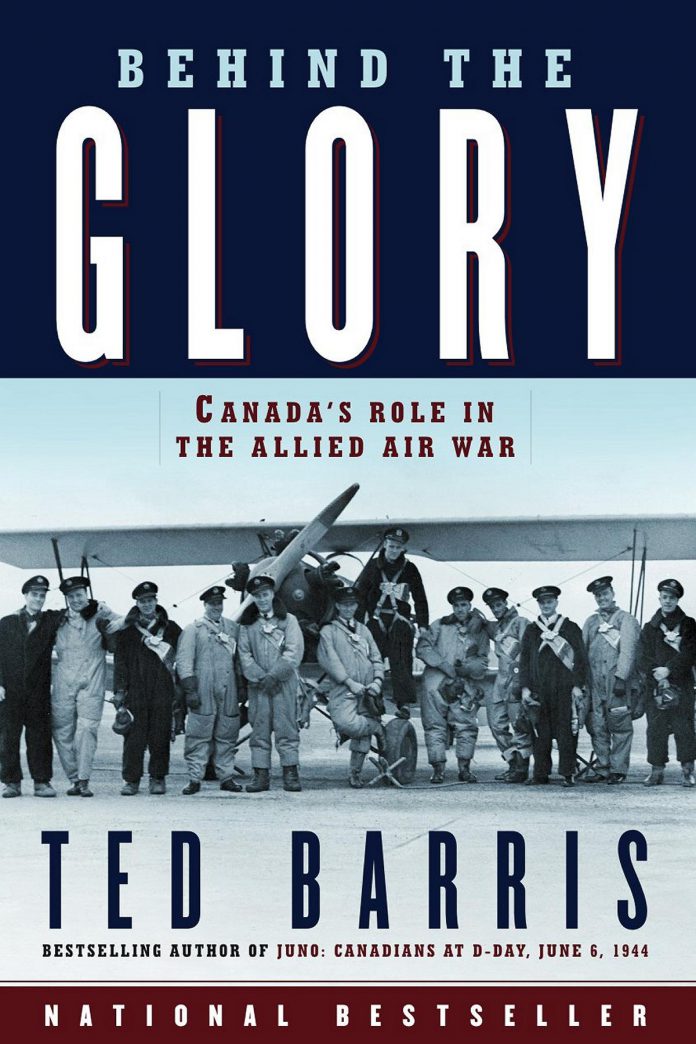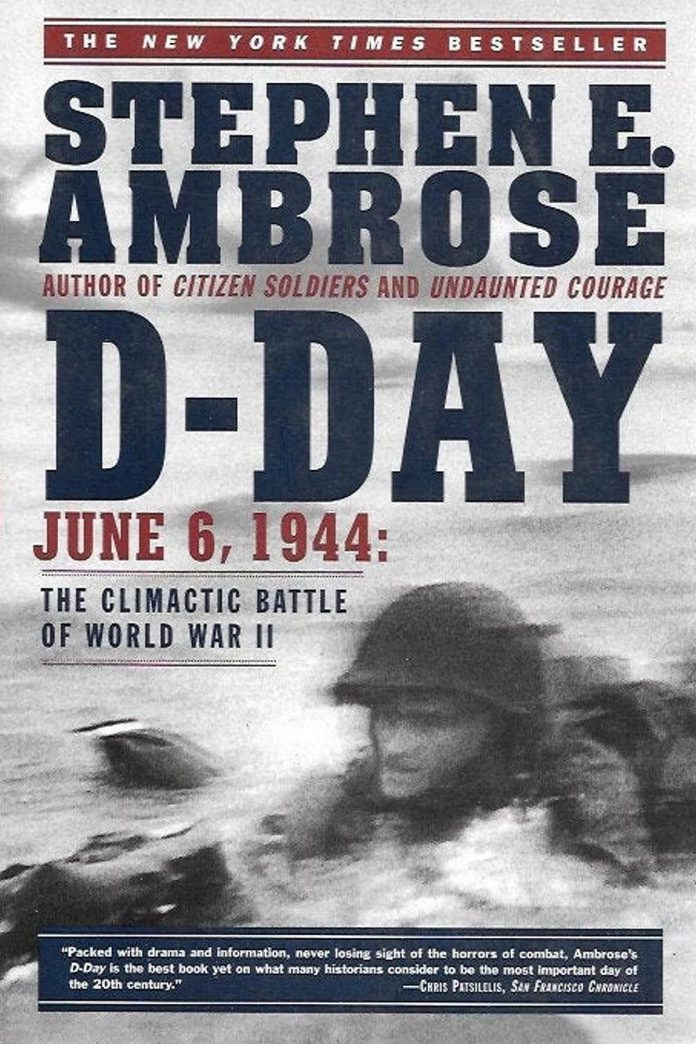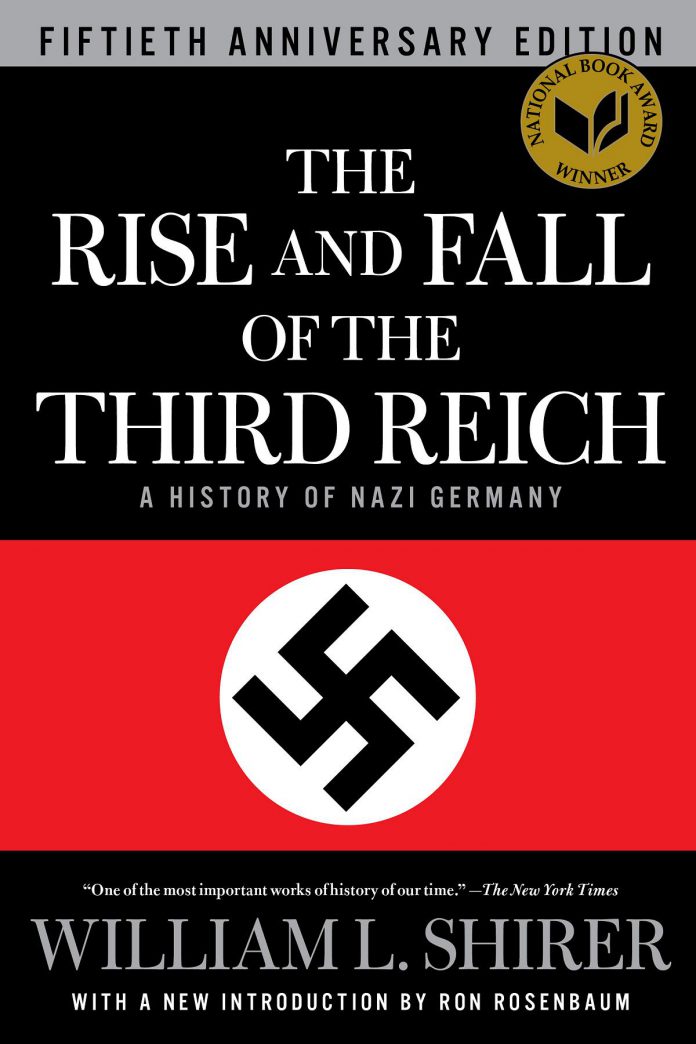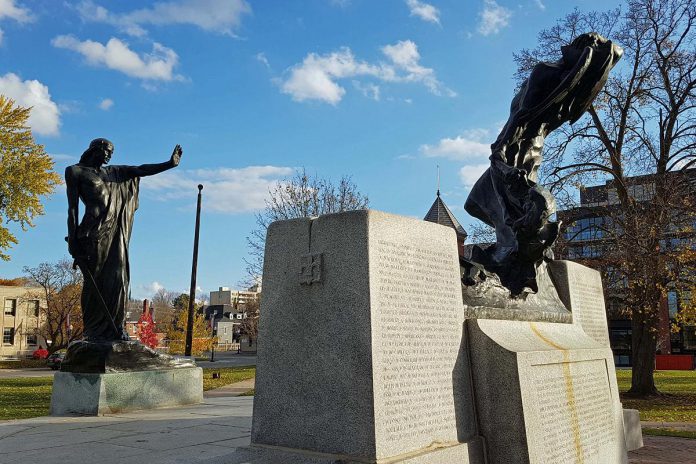
As Remembrance Day nears, my thoughts turn to my father, and how proud he was of his service during the Second World War, limited as it was.
Stationed in England, he was slated to join the Allied invasion of France on June 6, 1944. But just a week prior, he contracted pneumonia and was held back. His condition worsened and, not long after, he was returned home to Toronto.
Dad was afflicted with asthma until he passed in 2007 — a byproduct of his wartime illness — but he came home to live a productive and full life. Many of his friends did not. He sometimes lamented he that he ‘missed out.’ My siblings and I still thank God that he did.
Close to 20 years after returning to his wife and young daughter — my mom and sister — Dad planted the seed for my lifelong reading of as many fact-based accounts of armed conflict past as I could, in particular any and all books pertaining to the lead up, waging, and aftermath of the Second World War.
It was the summer of 1963 when Dad loaded me into the family sedan for a rare father-son night out. After settling in at the storied Fox Theatre on Queen Street in Toronto’s Beaches district, I was transfixed for three hours as The Great Escape, John Sturges’ epic film based on Paul Brickhill’s 1950 book of the same name, flickered across the screen.
To put things in context, my only cinema experience up that point was accompanying my mom for the debut of every Elvis Presley movie released up to that point. Dad wasn’t an Elvis guy, and my siblings were old enough to do their own thing, so I was it. Good times with mom, for sure, but a far cry from Steve McQueen jumping successive barbwire fences atop a Triumph TR6 motorcycle. This six year old had a new Superman to idolize and he was coolest of the cool. I’d argue he still is.
VIDEO: “The Great Escape” (1963) trailer
A few years later, my first library card proudly secured, I checked out Brickhill’s book from the Main Street library branch and read a good chunk of it during the long walk home. And so my affinity for all books war-related began. The gift of a Kobo reader a few years back put an end to my buying hard copies of books, but the home office retains that lovely musky book smell. I can’t part with them.
As the day when we pause and remember nears, the following are five books in my collection that I’m in the process of re-reading.
Each reminds me not only of remarkable courage displayed and painful sacrifices made, but also that history has something to teach us. Based on current world events, particularly in Ukraine and in the Middle East, we haven’t heeded the lessons of the past. That is a tragedy greater than war itself.
“Vimy” by Pierre Berton
At 5:30 am on Easter Monday in 1917, just north of Arras, France, a deafening artillery barrage marked the beginning of the Battle of Vimy Ridge. Within three days, four divisions of the Canadian Corps had done what their British and French brethren had failed to do in successive attempts over the two years prior: seize and hold the best-defended German position on the Western Front.
Victory didn’t come without a tragic cost — 10,000 Canadians breathed their last in the mud and slime — but as many a historian has noted and rightly so, Canada, in short order, emerged as a nation unto itself as opposed to a colonial British outpost.
Pierre Berton’s recounting of what transpired prior, during, and after the battle is as riveting as it is vital in terms of reminding us that the men who stormed Vimy Ridge were ordinary Canadians — farmers, fishermen, and shopkeepers — who did some extraordinary things.
I’m reminded each November 11th that sculptor Walter Allward, who designed the striking Canadian National Vimy Memorial that was unveiled in 1935 on French soil gifted to Canada, also designed the Peterborough Citizens War Memorial. It was unveiled six years earlier in Confederation Park as a tribute to those from Peterborough city and county who left for France but never came home.
“Their Finest Hour” by Winston S. Churchill
Those looking to understand how David possibly found the resolve, and the required strength of character, to put Goliath down would be wise to turn the pages of the second volume of Winston Churchill’s epic six-volume account of the Second World War.
Few had the ringside seat the wartime prime minister of England had, from the fall of France to the Nazis in 1940 to Victory In Europe Day five years later. This volume focuses on events post-Dunkirk as England stood alone, the threat of seaborne invasion very real and foreboding; the book’s title borrowed from his still-stirring House of Commons tribute to the Royal Air Force’s stunning defeat of the superior Luftwaffe in the skies over the Channel and England itself.
I can’t say with it any degree of certainty that Ukraine President Volodymyr Zelenskyy has a copy of Their Finest Hour close at hand but, if not, he should. His small country is fighting a behemoth, not unlike England in 1940-41. Supporting allies have given his forces armaments. Churchill gives him reason to believe.
“Behind The Glory: Canada’s Role In The Allied Air War” by Ted Barris
I list this book but, for the definitive perspective on Canada’s immense contributions to the two world wars and the Korean War, any book written by Ted Barris will do the job.
A journalist by profession, Barris’ first military-themed book was Behind The Glory. Published in 1992, it tells the story of Canada’s largest Second World War expenditure: $1.75 billion to train close to 250,000 Allied airmen for action overseas. In doing so, he brought a little known aspect of Canada’s contribution to the war effort to light.
Barris’ subsequent books covered the Canadian experience on Juno Beach, in Korea, and at Vimy Ridge. He is a masterful storyteller who, not unlike any historian worth his or her weight in gold, relentlessly seeks out those who were there and asks the one question that matters most: What was your experience?
Last year, just prior to Remembrance Day, I had the honour of interviewing Barris, a 2022 Order of Canada recipient, for my YourTV program. That we chatted in the shadow of Peterborough’s remarkable cenotaph was poignant. As we later scanned the names of those long gone, I couldn’t help but sense the gratitude of those who Barris has so fittingly honoured.
“D-Day: The Climactic Battle of World War II” by Stephen E. Ambrose
For my money, this is the definitive account of what General Dwight D. Eisenhower termed The Great Crusade — the Allied invasion of Nazi-occupied France on June 6th, 1944.
Countless books have detailed what transpired on the day of days that saw five beaches in the Normandy region stormed by Canadian, American, and British troops but Ambrose, by way of close to 1,500 interviews of veterans, and German survivors too, captures the horror and glory of the D-Day landings like few have — one exception being Cornelius Ryan, whose 1959 book The Longest Day has well withstood the test of time and remains very worthy of a read.
Ambrose is an American and, as such, his D-Day tome primarily relates the invasion experiences of American soldiers who came ashore on Omaha Beach, albeit there is a chapter dedicated to what transpired on Juno Beach on which a combined Canadian-British force landed. Still, the man who also penned Band of Brothers stays true to a formula of getting the most from his interview subjects and putting the reader right there with them as they pray, crawl forward … and then pray again.
“The Rise and Fall of the Third Reich” by William L. Shirer
Decades after the fact, it’s still difficult to comprehend how a nation of cultured and enlightened people could throw their lot behind a politician hell bent on world domination, making no secret, via a widely published book, of his plan to exterminate those he viewed as inferior human beings.
American journalist William Shirer’s exhaustive 1,140-page study of the birth of Nazi Germany — and the horrors and persecutions that followed — is arguably the most important book of the 20th century, it’s still relevant lesson being that appeasement to a dictator’s demands will never have a good ending.
With a front-row seat during those turbulent times until his ouster from Germany in December 1941 following Germany’s declaration of war against the United States, Shirer was a witness to a people seduced by false promises, relieved by Germany’s release from the shackle of the Versailles Treaty and overjoyed by early military victories.
This book is must reading for anyone even remotely interested in how sheep will gladly follow a shepherd over a cliff if they’re told it won’t hurt much when they hit the ground. As Nazi Germany’s corrupt Minister of Propaganda said, “If you tell a lie big enough and keep repeating it, people will eventually come to believe it.” Tragically he’s been proven right time and time again since. Will we never learn?
Peterborough will pause to remember on Saturday, November 11th, with the major public commemoration again held at the Cenotaph in Confederation Park.
Organized and hosted by Branch 52 of the Royal Canadian Legion, the 10:30 a.m. service will be preceded at 10 a.m. by a veterans’ parade in the downtown core.
Prior to the moment of silence at 11 a.m., Mayor Jeff Leal and past Legion president Joel Chandler will speak, followed later in the ceremony by invited guest speaker Peterborough police chief Stuart Betts.





















